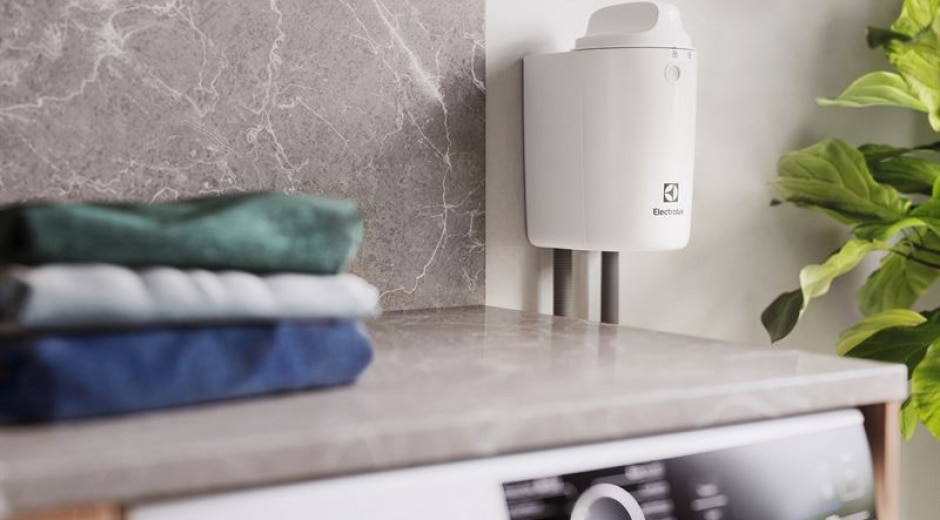Electrolux launches a new Microplastic Filter for washing machines to help prevent up to two plastic bags worth of microplastic fibers* from being released from laundry, per household, every year.
The new Microplastic Filter can prevent up to 90% of microplastic fibers, larger than 45 microns, being released from synthetic clothing during laundering.
Laundering alone causes around half a million tons of plastic microfibers to be released into the ocean every year. According to the United Nations Environment Programme (UNEP), the size of the problem is the equivalent of releasing three billion polyester shirts into the ocean every year. **
The new Microplastic Filter, made with at least 50% recycled plastic, has a cartridge with a thin mesh filter that catches the microplastic fibers as they are released from synthetic clothing in the washing process. When the filter needs cleaning, users can then dispose of the microplastic fibers in the household waste. The filter works with Electrolux, AEG and Zanussi washing machines, secured to a wall by the machine.
According to ‘The Truth About Laundry Microplastic Edition’, a new report from Electrolux, 94% of all adults do not know how much plastic is in clothes. When put to a fiber test, 68% of Europeans were unaware that Nylon is a plastic fiber nor did 62% know Polyester, the world’s commonly used fiber, is plastic.
Part of the problem, according to Sarah Schaefer, Electrolux VP Sustainability (Europe), is a lack of awareness of what ‘synthetic’ means.
“We have become so accustomed to the phrase ‘synthetic material’ that the majority of us have lost sight of the fact that most of these synthetic materials are actually plastic,” said Schaefer.
“Our research shows that there is an urgent need to help people understand more about the materials they are buying and how best to care for them as well as encouraging as many people as possible to adopt more environmentally positive laundry practices,” continued Schaefer. “By taking a series of small steps, including installing a Microplastic Filter, each of us can reduce our environmental impact from textiles.”
A recognized sustainability leader in the appliance industry, Electrolux has won many awards for its commitment and performance, including a prestigious double “A” score for climate and water action by the global non-profit, CDP.
About the research
The research findings are based on quantitative data collected from 15,000 adults across fifteen European markets. OnePoll, a survey-led market research company – managed the research in collaboration with Electrolux and its partners. The survey was fielded between 15.10.2021 and 10.11.2021 with data collected from the general population in the following countries: Belgium, Denmark, Finland, France, Germany, Italy, the Netherlands, Norway, Poland, Portugal, Russia, Spain, Sweden, Switzerland and the UK.
The data was weighted for each country to ensure accurate representation by age, marital status, income/social class, ethnicity and region. For a statistic of 50% the margin of error for sampling on a sample of 1000 respondents is ±3.1%. For smaller or larger statistics, the margin of error will decrease and falls to 1.9% for a statistic of 10% or 90%. This is based on all countries having 1000 respondents per market. This margin of error is small making the data highly reliable.
* Assuming a weight of 5 g per grocery bag (Julien Boucher, Damien Friot – Primary Microplastics in the Oceans – IUCN 2017)
** https://www.unep.org/news-and-stories/story/fashions-tiny-hidden-secret



